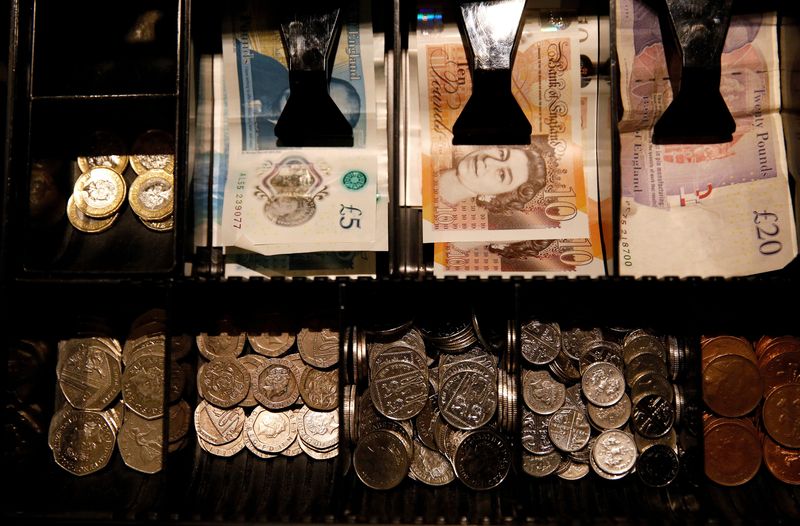By Alun John
LONDON (Reuters) - The pound dipped to its lowest in six months against the dollar and its weakest in four months against the euro on Monday, as jitters across asset classes hurt the currency already bruised by markets' reevaluation of the Bank of England's rate outlook.
The BOE kept rates on hold last week - the first meeting at which it had done so since December 2021 - on the back of signs economic growth is slowing.
Market pricing prior to that meeting had reflected expectations that a further 25 basis point rate hike was all but certain for 2023, if not at that specific meeting, but, on Monday, expectations for a further rate hike this year were roughly 40%.
That underscored a reversal of the trend earlier this year when the pound had been boosted by expectations that the Bank of England would keep raising rates longer than the European Central Bank and the Federal Reserve.
Sterling, on Monday, dropped as much as 0.25% to $1.2213 its lowest since March 2023, though later steadied to trade flat on the day at $1.2242.
It is on track for a monthly loss of 3.4%, its most since September last year when it was battered by a strong dollar and then Prime Minister Liz Truss's economic policies.
The euro on Monday briefly touched 87.03 pence, its highest since May, and was last flat a touch below that level.
"What we’re seeing today is the Chinese real estate worries bleeding into the European session, weighing on equity markets and then on the euro and sterling," said Nick Rees, FX market analyst at Monex Europe.
"That builds on what happened last week with the Bank of England," said Rees, "Markets are now thinking about what the Bank is seeing in the economy."

Global shares fell on Monday, partly on the back of embattled developer China Evergrande saying it was unable to issue new debt due to an ongoing investigation into its main domestic subsidiary. [MKTS/GLOB]
British business activity data released on Friday, the day after the BOE's decision showed companies endured a much tougher September than feared, with the purchasers managing index dropping to its lowest since the pandemic lockdown of January 2021.